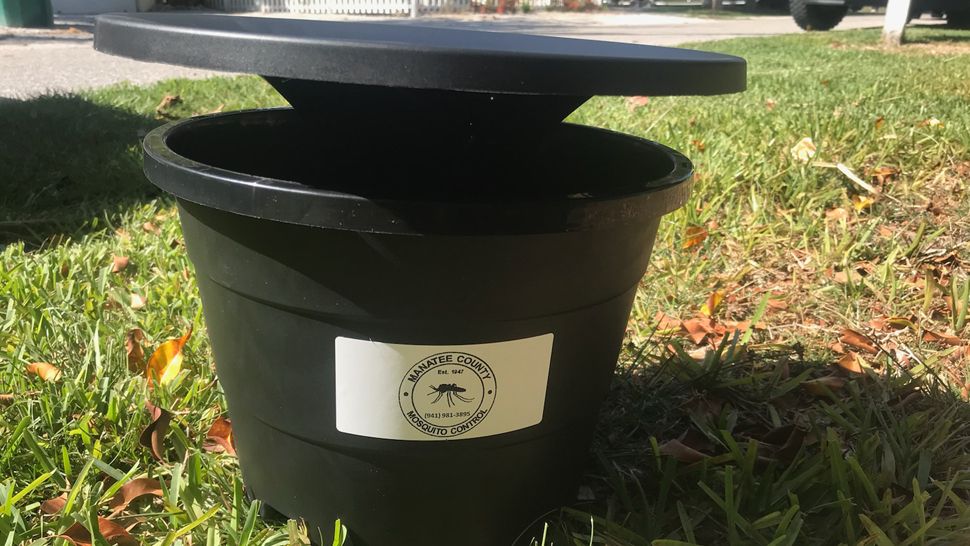LONGBOAT KEY, Fla. -- A small army of biologists were out in a Longboat Key neighborhood Wednesday, installing more than 500 bucket-like mosquito traps as part of an experiment in mosquito control. It's the first time something like this experiment has been performed in the Bay area.
- Traps specifically target mosquito species known to carry Zika virus
- Traps not meant to replace traditional methods of mosquito control
- Traps wills stay out until August
Resident Bus Fischer looks forward to the day he can enjoy a dinner outside without being attacked by swarms of mosquitoes. He's hoping the black buckets the biologists placed around his yard will do the trick.
"If this helps reduce the crowd, that'd be fine with me," he said.
Here's how the traps work:
- The buckets are filled with water, so female mosquitoes will fly inside and lay their eggs.
- There, they will touch a powerful insecticide that will stick to their body.
- When they fly away, they will infect others and any eggs they lay.
These traps specifically target the Aedes Aegypti mosquito, which is the species known to carry Zika. The idea is that part of the species will die off over time.
"She's pretty much doing the work for us," said Eva Buckner, who is heading up the project.
Buckner did note that while her team hoping the new traps will drastically cut down on the number of disease-carrying bugs, they won't replace traditional techniques.
"We're still going to need the sprays to target the over 50 other species of mosquitoes we have here in Manatee County," Buckner said.
The buckets will stay out until August.



